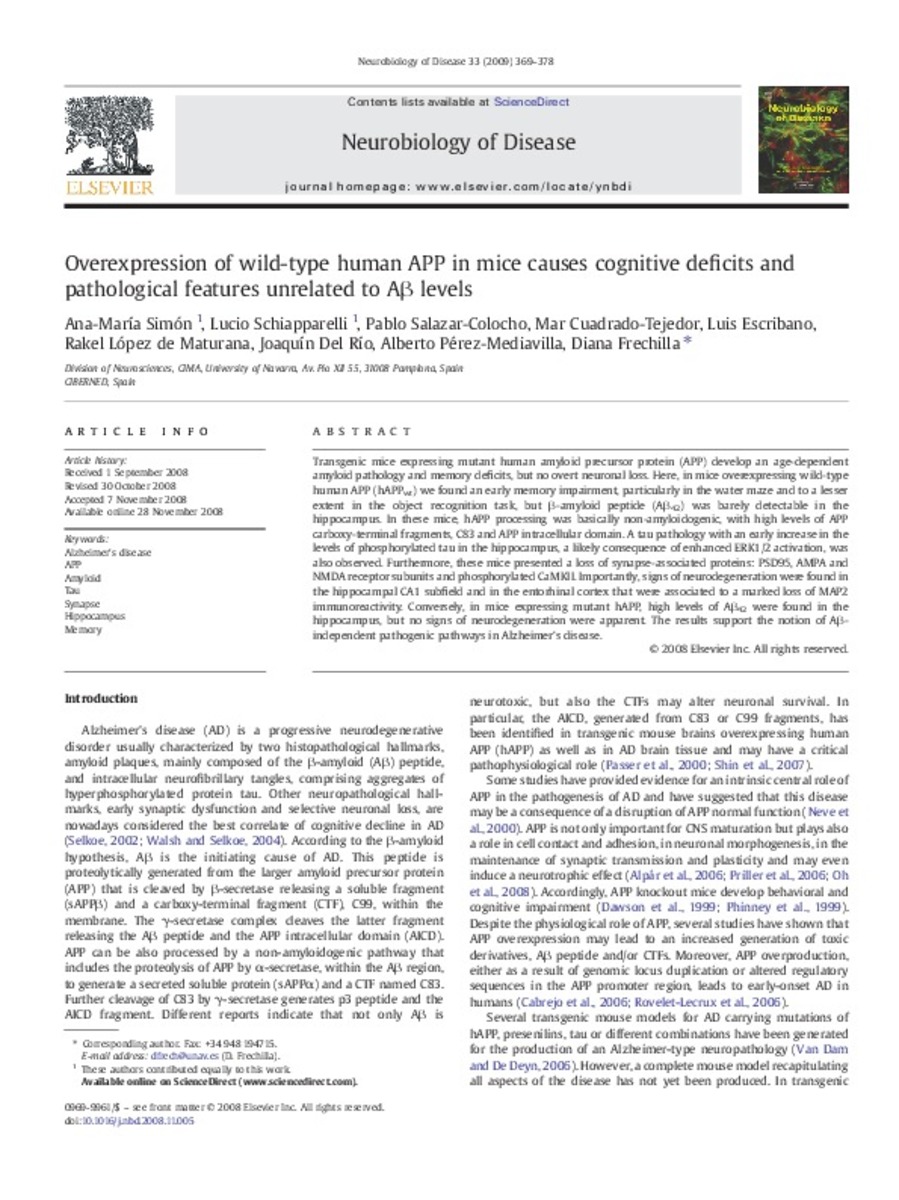Overexpression of wild-type human APP in mice causes cognitive déficits and pathological features unrelated to Abeta levels
Palabras clave :
Alzheimer's disease
Memory
Hippocampus
Synapse
Tau
Amyloid
APP
Fecha de publicación :
mar-2009
Cita:
Simon AM, Schiapparelli L, Salazar-Colocho P, Cuadrado-Tejedor M, Escribano L, Lopez de Maturana R, et al. Overexpression of wild-type human APP in mice causes cognitive deficits and pathological features unrelated to Abeta levels. Neurobiol Dis 2009 Mar;33(3):369-378.
Aparece en las colecciones:
Estadísticas e impacto
0 citas en

0 citas en

Los ítems de Dadun están protegidos por copyright, con todos los derechos reservados, a menos que se indique lo contrario.








